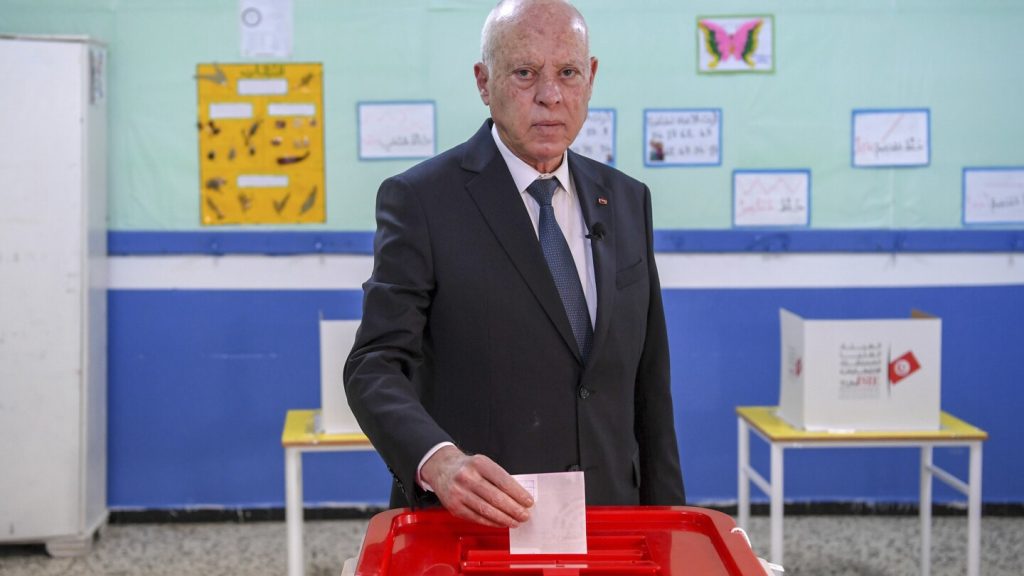The electoral authority in Tunisia has approved only two candidates to challenge President Kais Saied in the upcoming election, one of whom was promptly arrested for allegations relating to falsification of signatures. Businessman Ayachi Zammel, who leads a small pro-business party, was taken into custody in relation to this investigation. The decision to approve only three candidates, including incumbent Saied and former left-wing member of parliament Zouhair Maghzaoui, has raised concerns about democratic backsliding in Tunisia. Saied has been criticized for imprisoning political opponents, suspending parliament, and rewriting the constitution, consolidating his power in the country that sparked the Arab Spring uprisings a decade ago.
The electoral authority’s decision to exclude several candidates flew in the face of a ruling by Tunisia’s highest administrative court, which had favored reinstating three other candidates who had initially been barred from running. The electoral commission cited reasons such as not receiving the court’s ruling within legal deadlines and a lack of necessary endorsements or financial deposits for its decision. Critics have accused the commission of being politically motivated, with spokesperson Faycel Bouguerra stating that the failure to implement the court’s rulings is unprecedented. Members of NGOs and opposition parties have protested the exclusion of the three candidates who were not approved to run against Saied.
Despite expectations of a barely-contested election, President Saied has made significant changes in Tunisia’s political landscape in recent months. He dismissed most of his cabinet last month and has faced criticism for arrests and gag orders placed on leading opposition figures, deemed as politically driven. While some segments of the population continue to support Saied and his populist rhetoric against corrupt elites and foreign interference, political participation in Tunisia has declined since his presidency began in 2019. Notably absent from the list of approved candidates are some of Saied’s most vocal critics, such as the imprisoned leader of the Free Destourian Party and a former figure from the Islamist party Ennahda who had filed to run for president.
The exclusion of several candidates from the electoral race has sparked protests and accusations of political bias within the electoral commission. Observers have raised concerns about the fairness and transparency of the upcoming election, especially in light of the growing restrictions on political freedoms in Tunisia. With campaigning set to begin on September 14, the country faces a pivotal moment as it prepares for the presidential election on October 6. The decision to limit the candidate pool to only two challengers to incumbent President Saied has further raised questions about the state of democracy in Tunisia and the ability of opposition voices to participate in the electoral process.


